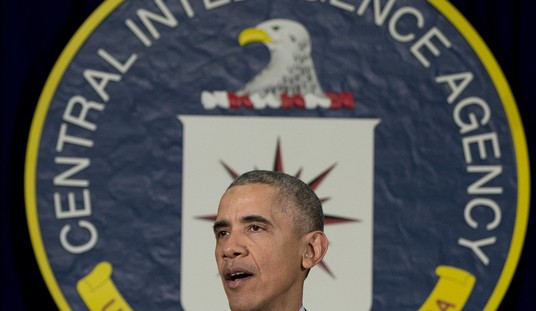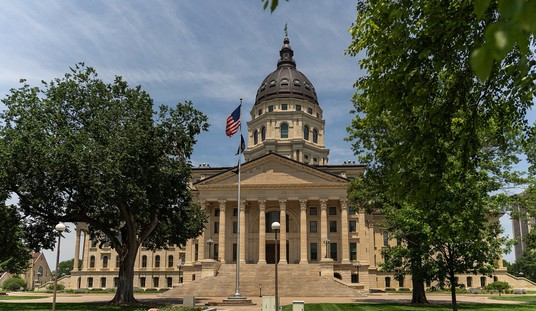Earlier today, rumors were that the Senate GOP was considering a “trigger” in tax reform that would effectively nix or reverse tax cuts if the revenue anticipated to stem from enhanced economic activity, thanks to said tax cuts, didn’t materialize.

Tonight, it looks like Senate Republicans are just going to reduce tax cuts by $350 billion to win over debt hawks– maybe more, given fresh analyses that are now emerging showing a bigger debt/deficit impact than what debt/deficit hawks want to see.
But there’s a different proposal that Senate Republicans should be considering, that would presumably do more to placate debt/deficit hawks, most of whom have at least as big a problem with excessive government spending as they do with too-high taxes, and should not– if Republicans are remotely interested in voting in a way that accords with their rhetoric– be a problem for the rest of the gang. From my column at US News:
The trigger that Congress should ultimately incorporate into whatever bill is sent to the president is one that would automatically force spending cuts even if post-tax-reform revenue meets expectations, in terms of its deficit/debt-increasing impact.
Ideally, the cuts would mimic the sequester, and come from both entitlements (especially Medicare, the main driver of the debt) and defense (where there is plenty of pork barrel spending to be eliminated, contrary to what defense hawks tend to assert).
[…]
Of course, this kind of trigger is exceedingly unlikely to happen. The sequester, while popular with many base GOP voters (and a few more blue dog Democrat types, where they still exist), was not popular in Congress, which loves to buy people’s votes by throwing money at them and which knows very well that seniors (who tend to be more conservative, including on defense matters, and who obviously rely on Medicare and Social Security) vote more reliably and in greater numbers than 20-somethings. That said, the sequester did still become law, which means the once-unicornish, deficit-hawk-ideal spending-cut-deal now looks more like an albino giraffe: Not something out of a fairytale, totally made up, never to be seen in real life, just something really, really rare and probably not something you’re going to see born and reborn 20 times over the course of your life.
Something a little more feasible might be a trigger that targets non-defense discretionary spending, which Republicans are happy to campaign on cutting, at least. (In practice, Republicans haven’t proven to be especially good at cutting any spending, as the Bush era demonstrated aptly, and as the Trump era could also come to show.)
On spec, it would seem more feasible to get a deal in place for insertion of a trigger targeting this: The GOP’s defense hawks won’t get stressed about it; the more libertarian slash-and-burn types will grumble a little about how it doesn’t address the Medicare-driving-debt problem but ultimately will be happy about any spending reductions.
That leaves moderates. Of those, in the House, many are already lost causes because they take issue with proposed elimination of state and local tax deductions. The question is whether any more would bail on the final package if a spending-cut-trigger were included. Maybe, maybe not.
Two open questions, tonight, as the GOP Senate caucus proceeds with tax reform: Has this proposal been mooted, even behind closed doors? Have Senate moderates (or House moderates who supported the House bill but could bail on a final package) said “no way” to such a deal behind closed doors, and is that why this isn’t on the table? As noted, it appears that more analyses are coming out by the minute that show the debt implications of the deal as it stands are not what debt/deficit hawks are hoping to see (just turn on CNN).
In all candor, while politics is indeed the art of the possible, it would be preferable to try to address too-high spending here rather than curtailing tax cuts– if Republicans really believe that big tax cuts will indeed stimulate mass economic activity that will promote more, and higher economic growth, and will make the deficit and debt impact of this less than some more bearish analyses suggest, and if they indeed do believe the federal government spends too much hard-earned taxpayer money.














Join the conversation as a VIP Member